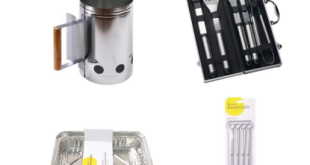 A new study from market research company Mintel claims that almost nine out of ten (86%) Brits were Amazon users/shoppers in the year to October 2018.
A new study from market research company Mintel claims that almost nine out of ten (86%) Brits were Amazon users/shoppers in the year to October 2018.
According to Mintel, more Amazon shoppers increased their shopping (21%) with the internet giant than decreased it (13%) over the period. Overall, 70% shopped with the retailer at least once a month, while just under a fifth (17%) used the retailer on a weekly basis.
In terms of what’s in the basket, hardcopy media such as books, DVDs or video games were the top Amazon purchases, accounting for 39% of sales, followed by electricals (30%), fashion/jewellery (30%), and toys (20%).
A total of 45% of UK households have some form of Amazon produced device, with Kindle (23%), Fire TV/TV Stick (16%), Fire Tablet (14%), and Echo (11%) proving the favourites, according to Mintel’s ‘Online Retailing – UK’ report published in July 2018.
Mintel claims that as many as half (51%) of Amazon users assume that the e-retailer has the cheapest prices, while six in ten (59%) say they are loyal to the company. And 70% say Amazon is the first retailer they go to when shopping online.
Mintel associate director of retail Nick Carroll said: “Amazon is a phenomenon of 21st century retail. In a little over 20 years, it has grown to be a retailer that nearly all consumers use. It has achieved this through a relentless focus on customer-facing investment and innovation.
“Amazon started selling books, but now holds a significant share in almost all retail categories, helped by the incubation of thousands of independent sellers through its Marketplace scheme. The retail giant has expanded far past the bounds of normal retail operations into media streaming, consumer electronics and cloud computing. Amazon has built a platform that customers are both happy to use, and pay for the privilege of doing so, via its various subscription services.”
Four in ten (39%) consumers have access to Amazon Prime, with just over a quarter (26%) personally being members and a further 13% sharing access through someone else’s account. Scaled to a national level (adjusting for non-internet users that were not part of the online survey in Mintel’s research), this places Amazon Prime membership in the UK at around the 15 million mark.
And it seems that the nation’s younger consumers are the biggest fans of Prime, as 63% of 16-24s and 52% of 25-34s have access to this premium subscription service. Mintel research goes on to reveal that Prime membership has a major impact on purchasing, with members significantly more likely to purchase across all product ranges.
Mintel suggested that the main draw, or at least the most used perk of Prime, remains the speedy delivery offered at no extra cost to members; some two thirds (66%) of those with access to Prime said this is a service they regularly use. In contrast, the biggest barrier to Amazon’s recruitment of more members appears to be price: some 44% of those who have never been members put this down to the scheme being too expensive.
Nick commented: “While most consumers already shop with Amazon, the retailer continues to gain market share by increasing the number of Prime members. That’s because Prime members buy significantly more, and across a broader number of categories, than non-members. This is why Amazon continues to add to the list of Prime-exclusive services, with Premier League matches coming in the second half of this year. Regardless of the reasons people join Prime, there is a net benefit for the retail side of the business.”
Meanwhile, almost half (45%) of Amazon users said they believe that the e-tailer is responsible for physical stores closing- and three quarters (75%) said they often check the prices of products they see in-store on Amazon. And, Mintel notes, physical retailers are probably being used as showrooms, as 70% of Amazon shoppers said they research products elsewhere but then buy via the site.
But while many acknowledge the negative impact of Amazon on the high street, some 40% of Amazon users believe it supports independent retailers and 29% believe that shopping via Amazon Smile is a good way to give to charity.
Nick concluded: “Amazon’s growth has no doubt wounded rivals, but it is not the ‘high street killer’ that it is often painted out to be. It has certainly led on, and to a degree enforced, many trends that have come to define 21st century retail.
“However, it is not ‘all conquering’ at present. Indeed, even if the retailer accounted for roughly 50% of the online market held by online-only retailers, it would only account for around 9% of all UK retail sales. And despite the popularity of online retailing as a whole, the vast majority of all retail sales (82%) in the UK still come through physical stores. This leaves much room for its own growth – but equally for rivals to fight back.”
 Housewares Business-to-business magazine for housewares retailers and their suppliers
Housewares Business-to-business magazine for housewares retailers and their suppliers



